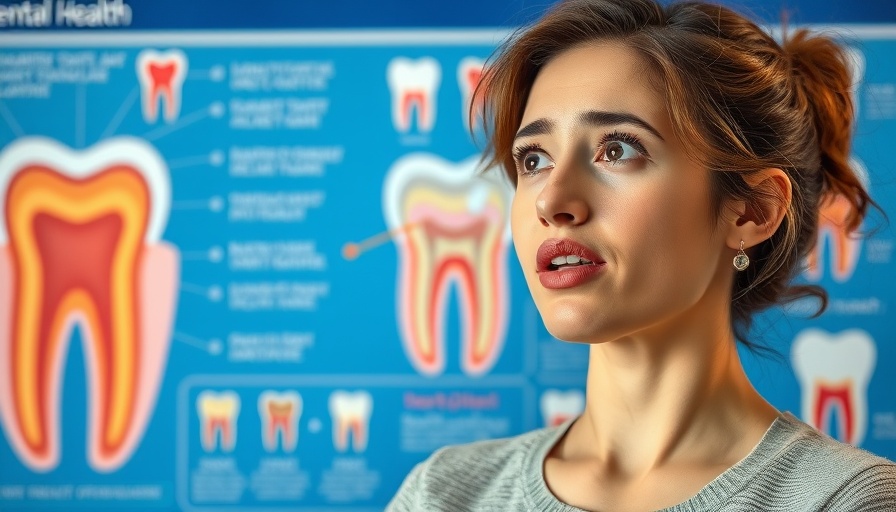
Are You Immune to Cavities and Gum Disease? Exploring New Insights
Your oral health has a profound impact on your overall well-being. The idea of being immune to cavities and gum disease sounds appealing, but is it achievable? Recent studies in dental health emphasize the importance of robust oral hygiene practices coupled with routine dental care. These practices not only help in preventing cavities but also in maintaining healthy gums, ultimately reducing the risk of dental issues over time.
In 'immune to cavities and gum disease? #shorts', the video explores important dental health insights, prompting us to delve deeper into how we can better protect our smiles.
The Science Behind Oral Health
The scientific aspect of oral health reveals much about how cavities and gum disease develop. Cavities occur when bacteria in the mouth feed on sugars, producing acids that erode tooth enamel. This is compounded by poor dental care habits. Meanwhile, gum disease, which includes gingivitis and periodontitis, arises from plaque buildup leading to inflammation of the gums. Regular dental checkups and cleanings, along with a consistent dental hygiene routine—brushing twice a day and flossing daily—are essential safeguards.
Understand Your Oral Hygiene Routine
An effective oral hygiene routine is crucial in cavity prevention and maintaining gum health. It includes proper techniques for brushing and flossing, as well as periodic visits to the dentist for professional cleanings. Using fluoride toothpaste is recommended, as fluoride strengthens enamel and makes it more resistant to decay. Remember, your routine should be holistic—consider incorporating products endorsed by dental professionals to maximize benefits.
The Role of Diet in Dental Health
Your diet heavily influences your dental health. Foods high in sugar and simple carbohydrates can contribute to cavity formation, while foods rich in fiber, vitamins, and minerals promote healthy teeth and gums. Calcium-rich foods, such as dairy products, leafy greens, and certain nuts, not only strengthen teeth but also support gum health. Staying hydrated aids in saliva production, which helps wash away food particles and bacteria.
Emotional Connections to Dental Health
Many people experience dental anxiety, making regular dental visits challenging. This anxiety can stem from past negative experiences or fears of dental procedures. Sharing personal narratives about overcoming dental fears can encourage others to prioritize their dental care without apprehension. Open conversations about the importance of oral health can foster community support, strengthening individuals’ commitment to their dental health journeys.
Empowering Yourself with Dental Education
Understanding dental procedures, such as the importance of dental implants or braces, empowers individuals to make informed choices regarding their dental health. Knowledge about the prevention and treatment of common dental issues, as well as understanding the risks associated with neglecting dental care, is vital. Resources like dental tutorials on proper flossing techniques or the significance of dental checkups can vastly improve an individual's approach to oral hygiene.
 Add Row
Add Row  Add
Add 




Write A Comment